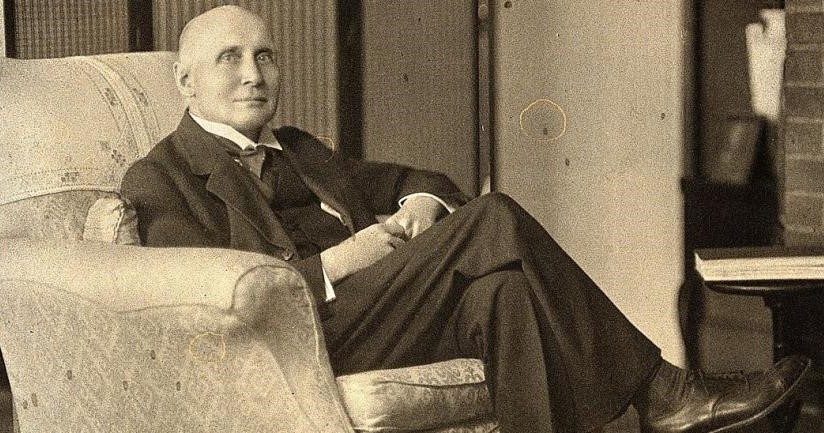One of the most quoted but least read philosophers: Who is Alfred North Whitehead?
People who can specialize in more than one field can be seen as quite remarkable people for the people of the 21st century and this century, where focusing has turned into a very difficult success. However, one of the scientists who succeeded in this was Alfred North Whitehead.

Alfred North Whitehead (1861–1947) was an important mathematician, logician, educator, and philosopher. The surprising complexity of Whitehead's thought, combined with the extraordinary literary quality of his writing, makes him one of the most quoted yet least read philosophers. Although he is known for his collaborative work "Principia Mathematica" with Bertrand Russell, he also made highly innovative contributions to philosophy, especially in the field of process metaphysics.
Alfred North Whitehead (15 February 1861 – 30 December 1947) was an English mathematician and philosopher. He created the philosophical school known as process philosophy, which has been applied in a wide variety of disciplines, including ecology, theology, education, physics, biology, economics, and psychology.
Alfred North Whitehead was born on February 15, 1861, in England. In 1880, he started his studies at Trinity with a high score and scholarship, especially in mathematics. This fellowship also qualified Whitehead for further rewards and reputations, eventually enabling him to be elected to Trinity as a lecturer.
It is known that Whitehead concentrated on teaching early in his career and taught at Trinity from 1884 to 1910. There is no published work during this period. Whitehead married Evelyn Wade in 1891, at the age of thirty. In this way, a more productive period began. It was during this period that Whitehead began to write his first major publication, Treatise on Universal Algebra. Although the book did not receive the expected attention in terms of mathematics, it laid the groundwork for his election as a "Member of the Royal Society" in 1903.
Bertrand Russell and Alfred North Whitehead. Both made important contributions in the fields of mathematical logic and set theory. Whitehead had been Russell's tutor at Trinity College, Cambridge, in the 1890s. Later, he collaborated with his former student on his monumental work “Principia Mathematica”.
After the publication of his first work, Whitehead began a long-standing collaboration on the work known as Principia Mathematica with his student, Bertrand Russell, who would eventually become a Trinity scholar.
In this huge work, Whitehead and Russell sought to show that all arithmetical concepts can be described in terms of purely logical concepts. Thus all of the arithmetic axioms would derive from a small number of fundamental propositions that were pure logical truths. In this way, they would have derived all of their mathematics from logical axioms, while avoiding the kinds of paradoxes and contradictions found in their previous work.
Whitehead's role on the project was to be the principal author of the fourth volume, which would become the logical foundations of geometry, rather than working with Russell on the far-reaching details of the first three volumes. But due to the thickness of the book, the fourth volume never appeared. Russell and Whitehead gained worldwide fame thanks to their work.
By 1900, Whitehead had been at Trinity College for three decades and had reached a stage where his creativity had stalled. During this period, his friend and colleague Andrew Forsyth had to face the loss of his current staff due to an affair with a married woman. Using this as an excuse, Whitehead also resigned from his own professorship. At age 49, with no job security, he moved his family to London.
It was here that Whitehead's explosion of philosophical creativity took place. Decades of research into logic and spatial thinking has revealed itself in a series of three books on science, nature, and Einstein's theory of relativity. In 1914, the "Royal College of Science and Technology" in London appointed him professor of applied mathematics.
By 1921, Whitehead had reached sixty, the mandatory retirement age within the British academic system. In 1924, he agreed to be appointed professor of philosophy at Harvard University. His Harvard term would be his most productive. He wrote his publications "Science and the Modern World", "Process and Reality" and "Ideas Adventures" during this period.
Whitehead continued to teach at Harvard until his retirement in 1937. He was elected to the British Academy in 1931 and was awarded the Order of Merit in 1945. He died on December 30, 1947. In his will, he asked his wife to burn all his work after his death. Because he believed that the evaluation of his thoughts should be based solely on his published work.
